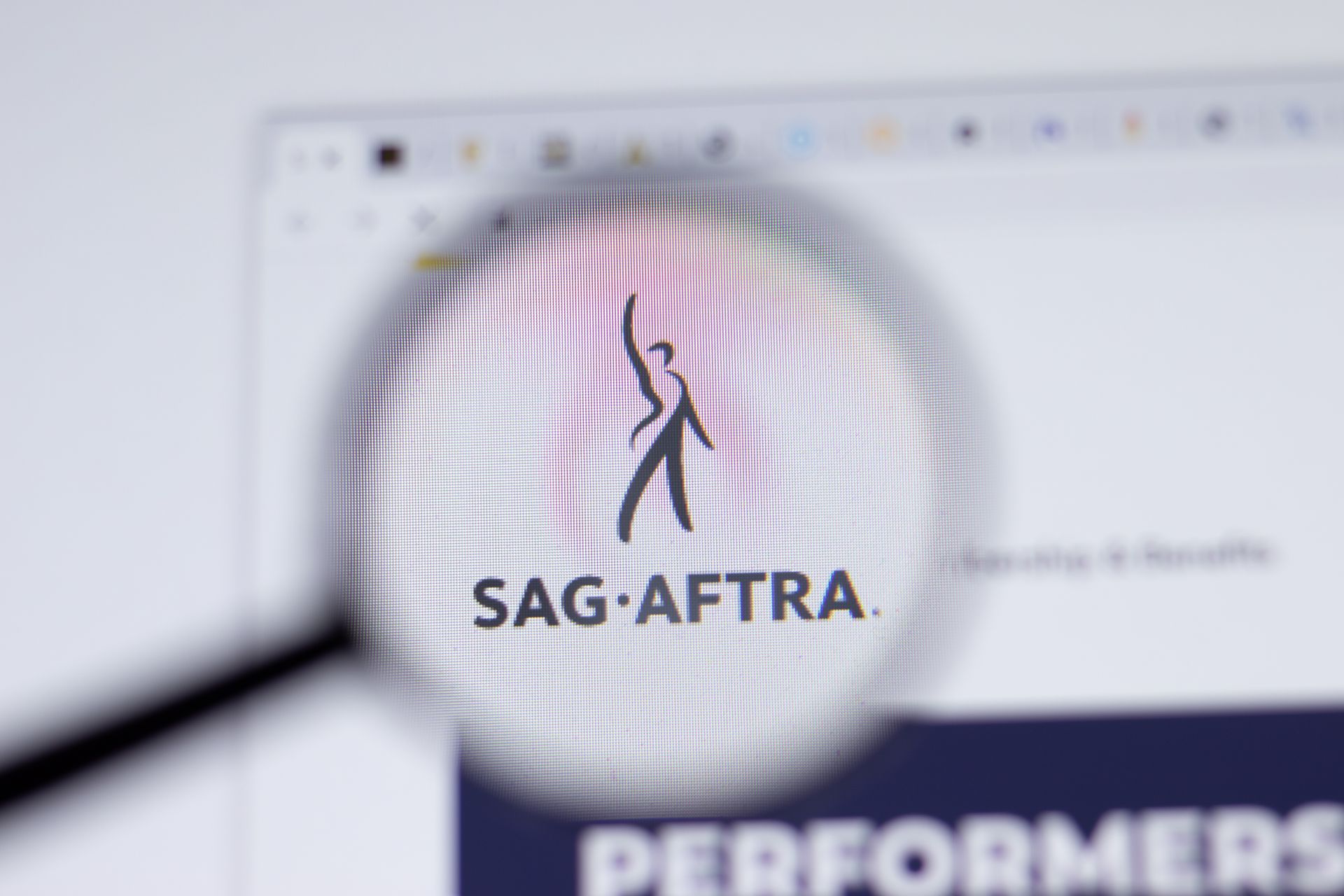Becoming a Union or Guild Signatory

Union and guild signatories in the motion picture industry can be a complex landscape filled with intricate agreements, legal implications, and financial considerations. As a producer understanding these complexities is crucial. It's not just about compliance, but also about leveraging the benefits that come with union affiliation. We aim to clarify the process of becoming a union and guild signatory and we'll review the requirements, the step-by-step process, and the implications of union agreements.
We'll also explore the major unions and guilds in the industry, such as the WGA, SAG-AFTRA, IATSE, and DGA. Understanding their specific requirements and agreements is key to successful navigation.
Understanding Union and Guild Signatory Basics
In the motion picture industry, a union or guild signatory is a producer or production company that has agreed to abide by the terms of a collective bargaining agreement negotiated between the union or guild and the producer.
Becoming a signatory is essential if you wish to hire union talent. It's a commitment to adhere to the union's rules and regulations, including wage scales, working conditions, and benefits. However, it's not just about compliance. Being a signatory also gives you access to a pool of professional talent, ensuring the quality of your production. Understanding the basics of becoming a signatory is the first step. The next is to familiarize yourself with the major unions and guilds in the industry.
Major Unions and Guilds in the Motion Picture Industry
There are several major unions and guilds in the motion picture industry. Each has its own specific requirements and agreements.
- Writers Guild of America (WGA)
- Screen Actors Guild‐American Federation of Television and Radio Artists (SAG-AFTRA)
- International Brotherhood of Teamsters (IBT)
- International Alliance of Theatrical Stage Employees (IATSE)
- Directors Guild of America (DGA)
Let's take a closer look at each of these unions and guilds.
Writers Guild of America (WGA)
The Writers Guild of America (WGA) represents writers in the motion picture, broadcast, cable, and new media industries. As a WGA signatory, you agree to the terms of the Minimum Basic Agreement (MBA), which outlines the employment terms for writers.
Understanding the MBA is crucial for WGA signatories. It covers key areas such as compensation, residuals, and credits.
Screen Actors Guild‐American Federation of Television and Radio Artists (SAG-AFTRA)
SAG-AFTRA represents actors, announcers, broadcast journalists, and other media professionals. If you wish to hire SAG-AFTRA members, you must become a signatory to the Theatrical and Television Basic Agreement .
These agreements outline the terms of employment for SAG-AFTRA members. It covers areas such as wages, working conditions, and residuals.
International Brotherhood of Teamsters (IBT)
The International Brotherhood of Teamsters (IBT) is a labor union representing a diverse range of workers in various industries, including transportation, logistics, and entertainment. In the motion picture industry, the IBT plays a crucial role in representing drivers, warehouse workers, and other essential personnel.
International Alliance of Theatrical Stage Employees (IATSE)
IATSE represents technicians, artisans, and craftspersons in the entertainment industry. As an IATSE signatory, you agree to abide by the terms of the collective bargaining agreement negotiated with the union.
Directors Guild of America (DGA)
The Directors Guild of America (DGA) represents directors and members of the directorial team. Becoming a DGA signatory means agreeing to the terms of the Basic Agreement and the Freelance Live and Tape Television Agreement.
These agreements outline the terms of employment for DGA members, including compensation, residuals, and creative rights. Understanding these agreements is key to successful navigation as a DGA signatory.
The Signatory Process: A Step-by-Step Guide
Becoming a union or guild signatory involves a specific process. While the exact steps may vary depending on the union or guild, the process generally involves the following stages:
- First, you must submit an application to the union or guild. This typically involves providing information about your production, including the budget, schedule, and key personnel.
- Next, you must agree to the terms of the collective bargaining agreement. This is a legally binding contract that outlines the terms of employment for union members.
- Once the agreement is in place, you must post a bond or deposit. This serves as a financial guarantee that you will adhere to the terms of the agreement.
- Throughout the production, you must adhere to the union's rules and regulations. This includes paying union members according to the wage scales outlined in the agreement, providing appropriate working conditions, and adhering to other stipulations.
- Finally, you must maintain detailed records of all union-related transactions. This includes payroll records, time reports, and other documentation.
Posting Bonds and Deposits
Posting a bond or deposit is a key part of the signatory process. This serves as a financial guarantee that you will adhere to the terms of the collective bargaining agreement. The amount of the bond or deposit varies depending on the union or guild and the specifics of your production. It's typically based on the estimated total compensation for union members for two weeks.
In some cases, the bond or deposit may be refundable. This depends on the terms of the agreement and your compliance with union rules and regulations. It's important to factor the cost of the bond or deposit into your budget. Failure to post the required bond or deposit can result in penalties and could jeopardize your signatory status.
Navigating Collective Bargaining Agreements
Collective bargaining agreements are at the heart of union and guild signatory requirements. These agreements outline the terms of employment for union members, including wages, working conditions, and benefits. Understanding these agreements is crucial. They can be complex, and the terms can vary depending on the union or guild and the type of production.
It's important to review the agreement carefully and seek legal advice if necessary. Misunderstanding or failing to adhere to the terms of the agreement can result in legal complications. Staying updated with the latest changes in union agreements is also key. Unions and guilds regularly negotiate new agreements, and the terms can change.
Finally, remember that collective bargaining agreements are legally binding contracts. As a signatory, you are legally obligated to adhere to the terms of the agreement.
Legal Implications and Compliance
Becoming a union or guild signatory carries legal implications. Adherence to the collective bargaining agreement is not optional; it's a legal obligation. Non-compliance can result in legal action. This could include fines, penalties, and potential lawsuits. Moreover, non-compliance can damage your professional reputation. It could make it more difficult to hire union talent in the future.
It's also worth noting that some unions conduct audits. They may request to see your records to ensure compliance. Finally, remember that ignorance of the rules is not a defense. It's your responsibility to understand and adhere to the terms of the agreement.
Financial Planning and Budgeting with Union Agreements
Union agreements significantly impact financial planning for productions. They dictate wage scales, overtime rates, and benefits contributions. These factors must be considered when budgeting. Missteps can lead to cost overruns and legal complications. Understanding these agreements is crucial. It ensures accurate budgeting and avoids financial pitfalls.
Payroll Management and Union Rules
Payroll management in union productions is complex. It requires a deep understanding of union rules and regulations.
Failure to comply can result in penalties. It's essential to have systems in place to ensure accurate and timely payroll.
Training and Education for Compliance
Training and education are vital for compliance. They ensure that all team members understand union requirements. Regular training updates are necessary. They keep the team abreast of changes in union agreements.
The Role of Labor Relations Consultants
Labor relations consultants play a crucial role. They help navigate the complexities of union agreements. Their expertise can prevent costly mistakes. They are invaluable in ensuring compliance and avoiding legal complications.
Becoming a union and guild signatory is a complex process. It requires a deep understanding of labor relations in the motion picture industry. However, with the right knowledge and resources, it is manageable. Following best practices and staying updated on changes can ensure successful compliance.









